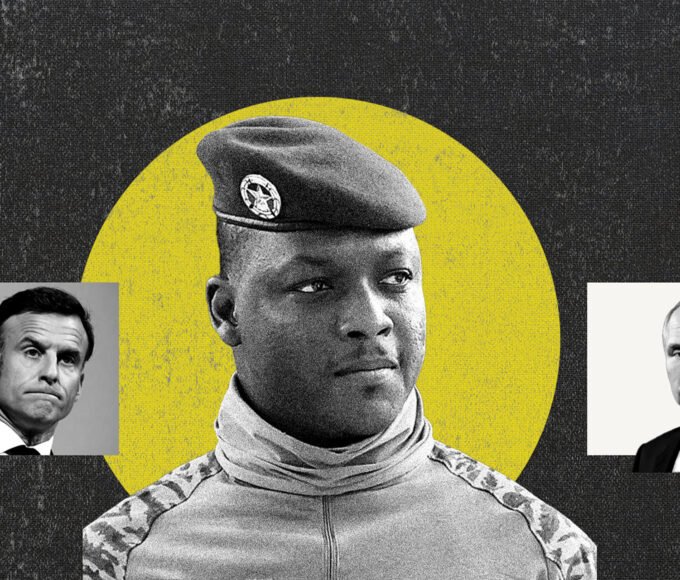5 Core Responsibilities Shouldered by a CEO
The title of Chief Executive Officer (CEO) suggests power, but fundamentally, it demands immense responsibility. Like a ship's captain navigating diverse seas, the CEO bears five core responsibilities essential for effective leadership, regardless of company size or sector.

The title of Chief Executive Officer (CEO) often evokes images of power and prestige, but at its core, the role carries immense responsibility. The CEO is the captain of the ship, steering the organization through calm waters and turbulent storms. While the specifics of the job can vary greatly depending on the size and nature of the company, five core responsibilities consistently define the essence of effective CEO leadership.
1. Setting the strategic direction and vision of the company
First and foremost, a CEO is fundamentally responsible for setting the strategic direction and vision of the company. This involves looking beyond the day-to-day operations and charting a course for the future. The CEO, often in collaboration with the board of directors, must define the company’s long-term goals, identify potential opportunities and threats, and articulate a clear and compelling vision that inspires employees, investors, and stakeholders alike.
This responsibility encompasses market analysis, understanding competitive landscapes, and making critical decisions about resource allocation and strategic priorities. A visionary CEO can anticipate industry shifts, identify emerging trends, and position the company for sustainable growth and success. Without a clear strategic direction, the organization risks drifting aimlessly, losing focus, and ultimately failing to achieve its potential.
2. Building and nurturing a high-performing leadership team
Secondly, a core responsibility of any CEO is building and nurturing a high-performing leadership team and fostering a positive organizational culture. The CEO cannot achieve the company’s goals single-handedly. They must surround themselves with talented and capable leaders who can effectively manage different aspects of the business. This involves not only recruiting and retaining top talent but also cultivating a collaborative and supportive environment where these leaders can thrive.
Furthermore, the CEO plays a crucial role in shaping the company’s culture – the shared values, beliefs, and behaviors that define how the organization operates. A positive and inclusive culture can boost employee morale, enhance productivity, and attract top talent. The CEO sets the tone at the top, and their actions and communication heavily influence the overall organizational climate. Fostering a culture of accountability, transparency, and respect is essential for long-term success.
3. Overseeing the financial health and performance of the company
A third critical responsibility of a CEO is overseeing the financial health and performance of the company. This involves ensuring the company operates within its budget, manages its resources effectively, and achieves its financial targets. The CEO works closely with the chief financial officer (CFO) and other financial leaders to monitor key performance indicators, analyze financial data, and make informed decisions about investments, expenditures, and revenue generation.
Maintaining financial stability and driving profitability are paramount for the long-term viability of the organization. The CEO is ultimately accountable to shareholders and stakeholders for the company’s financial performance and must ensure responsible and ethical financial management. This responsibility also includes navigating economic uncertainties and making strategic financial decisions that position the company for sustained growth and profitability.
4. Representing the company to the external world
The fourth core responsibility of a CEO lies in representing the company to the external world and managing relationships with key stakeholders. This includes investors, customers, government agencies, the media, and the broader community. The CEO serves as the primary spokesperson for the organization, articulating its values, mission, and performance.
Building and maintaining strong relationships with these stakeholders is crucial for the company’s reputation and long-term success. This involves effective communication, transparency, and a commitment to ethical conduct. The CEO must be able to navigate complex external environments, advocate for the company’s interests, and build trust and credibility with key constituents. In an increasingly interconnected world, the CEO’s ability to manage these external relationships is paramount.
5. Ensuring ethical conduct and corporate social responsibility
Finally, a fundamental responsibility of a CEO is ensuring ethical conduct and corporate social responsibility. The CEO sets the ethical tone for the entire organization and is accountable for ensuring that the company operates with integrity and in compliance with all applicable laws and regulations. This includes fostering a culture of ethical decision-making, promoting transparency, and holding individuals accountable for their actions.
Furthermore, in today’s world, CEOs are increasingly expected to consider the broader societal impact of their companies. This includes environmental sustainability, community engagement, and fair labor practices. A responsible CEO understands that long-term success is not just about financial performance but also about contributing positively to society and operating in a sustainable and ethical manner.
In conclusion, the role of a CEO is multifaceted and demanding, requiring a diverse set of skills and unwavering dedication. While the day-to-day tasks may vary, these five core responsibilities – setting strategic direction, building a strong team and culture, overseeing financial performance, managing external relationships, and ensuring ethical conduct – remain constant. Effectively executing these responsibilities is essential for navigating the complexities of the business world and leading an organization towards sustainable success and positive impact. The CEO truly is where the buck stops, bearing the ultimate responsibility for the organization’s triumphs and tribulations.
Recent Posts
Related Articles
Global Support for Ibrahim Traoré
Understand the forces behind Ibrahim Traoré's global support: anti-imperialism, economic changes, and...
ByTrendit AfricaThe Bedrock of Business: Why Discipline Fuels Founders, 5 Ways to Build It
Discipline isn't an innate quality; it's a muscle that can be developed...
ByTrendit AfricaStrategies to Stave Off Employee Burnout
Employee burnout has become a pervasive threat in today's demanding work environment,...
ByTrendit Africa














Leave a comment